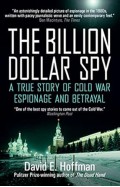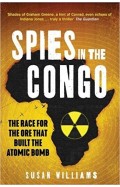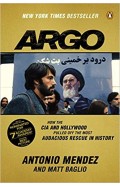The CIA: An Imperial History
By: Hugh Wilford
-
Rs 5,665.50
- Rs 6,295.00
- 10%
You save Rs 629.50.
Due to constant currency fluctuation, prices are subject to change with or without notice.
'Gripping history that also informs the present' Sunday Times
'Lively and original' The Spectator
'A spectacular achievement' Dominic Sandbrook
'Fast-paced, absorbing, insightful' Simon Hall
'Simply superb' Kathryn Olmsted
A celebrated British historian of US intelligence explores how the CIA was born in anti-imperialist idealism but swiftly became an instrument of a new covert empire both in America and overseas.
As World War II ended, the United States stood as the dominant power on the world stage. In 1947, to support its new global status, it created the CIA to analyse foreign intelligence. But within a few years, the Agency was engaged in other operations: bolstering pro-American governments, overthrowing nationalist leaders, and surveilling anti-imperial dissenters in the US.
The Cold War was an obvious reason for this transformation - but not the only one. In The CIA, celebrated intelligence historian Hugh Wilford draws on decades of research to show the Agency as part of a larger picture, the history of Western empire. While young CIA officers imagined themselves as British imperial agents like T. E. Lawrence, successive US presidents used the covert powers of the Agency to hide overseas interventions from postcolonial foreigners and anti-imperial Americans alike. Even the CIA's post-9/11 global hunt for terrorists was haunted by the ghosts of empires past.
Comprehensive, original, and gripping, The CIA is the story of the birth of a new imperial order in the shadows. It offers the most complete account yet of how America adopted unaccountable power and secrecy both at home and abroad.
'Gripping history that also informs the present' Sunday Times
'Lively and original' The Spectator
'A spectacular achievement' Dominic Sandbrook
'Fast-paced, absorbing, insightful' Simon Hall
'Simply superb' Kathryn Olmsted
A celebrated British historian of US intelligence explores how the CIA was born in anti-imperialist idealism but swiftly became an instrument of a new covert empire both in America and overseas.
As World War II ended, the United States stood as the dominant power on the world stage. In 1947, to support its new global status, it created the CIA to analyse foreign intelligence. But within a few years, the Agency was engaged in other operations: bolstering pro-American governments, overthrowing nationalist leaders, and surveilling anti-imperial dissenters in the US.
The Cold War was an obvious reason for this transformation - but not the only one. In The CIA, celebrated intelligence historian Hugh Wilford draws on decades of research to show the Agency as part of a larger picture, the history of Western empire. While young CIA officers imagined themselves as British imperial agents like T. E. Lawrence, successive US presidents used the covert powers of the Agency to hide overseas interventions from postcolonial foreigners and anti-imperial Americans alike. Even the CIA's post-9/11 global hunt for terrorists was haunted by the ghosts of empires past.
Comprehensive, original, and gripping, The CIA is the story of the birth of a new imperial order in the shadows. It offers the most complete account yet of how America adopted unaccountable power and secrecy both at home and abroad.
Zubin Mehta: A Musical Journey (An Authorized Biography)
By: VOID - Bakhtiar K. Dadabhoy
Rs 892.50 Rs 1,050.00 Ex Tax :Rs 892.50
The Billion Dollar Spy: A True Story of Cold War Espionage and Betrayal
By: David E. Hoffman
Rs 2,515.50 Rs 2,795.00 Ex Tax :Rs 2,515.50
Spies in the Congo: The Race for the Ore That Built the Atomic Bomb
By: Susan Williams
Rs 5,095.75 Rs 5,995.00 Ex Tax :Rs 5,095.75
Argo: How the CIA and Hollywood Pulled Off the Most Audacious Rescue in History
By: Antonio Mendez
Rs 3,547.50 Rs 7,095.00 Ex Tax :Rs 3,547.50
The Origins of Political Order From Prehuman Times to the French RevolutioN
By: Francis Fukuyama
Rs 4,045.50 Rs 4,495.00 Ex Tax :Rs 4,045.50
Manning Up: How the Rise of Women Has Turned Men into Boys
By: Kay Hymowitz
Rs 845.75 Rs 995.00 Ex Tax :Rs 845.75
The Obama Syndrome: Surrender At Home War Abroad
By: Tariq Ali
Rs 1,100.75 Rs 1,295.00 Ex Tax :Rs 1,100.75
The Quest For Meaning: Developing A Philosophy Of Pluralism
By: Tariq Ramadan
Rs 1,185.75 Rs 1,395.00 Ex Tax :Rs 1,185.75
The Billion Dollar Spy: A True Story of Cold War Espionage and Betrayal
By: David E. Hoffman
Rs 2,515.50 Rs 2,795.00 Ex Tax :Rs 2,515.50
Spies in the Congo: The Race for the Ore That Built the Atomic Bomb
By: Susan Williams
Rs 5,095.75 Rs 5,995.00 Ex Tax :Rs 5,095.75
Argo: How the CIA and Hollywood Pulled Off the Most Audacious Rescue in History
By: Antonio Mendez
Rs 3,547.50 Rs 7,095.00 Ex Tax :Rs 3,547.50
No recently viewed books available at the moment.
Zubin Mehta: A Musical Journey (An Authorized Biography)
By: VOID - Bakhtiar K. Dadabhoy
Rs 892.50 Rs 1,050.00 Ex Tax :Rs 892.50
The Billion Dollar Spy: A True Story of Cold War Espionage and Betrayal
By: David E. Hoffman
Rs 2,515.50 Rs 2,795.00 Ex Tax :Rs 2,515.50
Spies in the Congo: The Race for the Ore That Built the Atomic Bomb
By: Susan Williams
Rs 5,095.75 Rs 5,995.00 Ex Tax :Rs 5,095.75
Argo: How the CIA and Hollywood Pulled Off the Most Audacious Rescue in History
By: Antonio Mendez
Rs 3,547.50 Rs 7,095.00 Ex Tax :Rs 3,547.50














-120x187.jpg?q6)








-120x187.jpg?q6)







